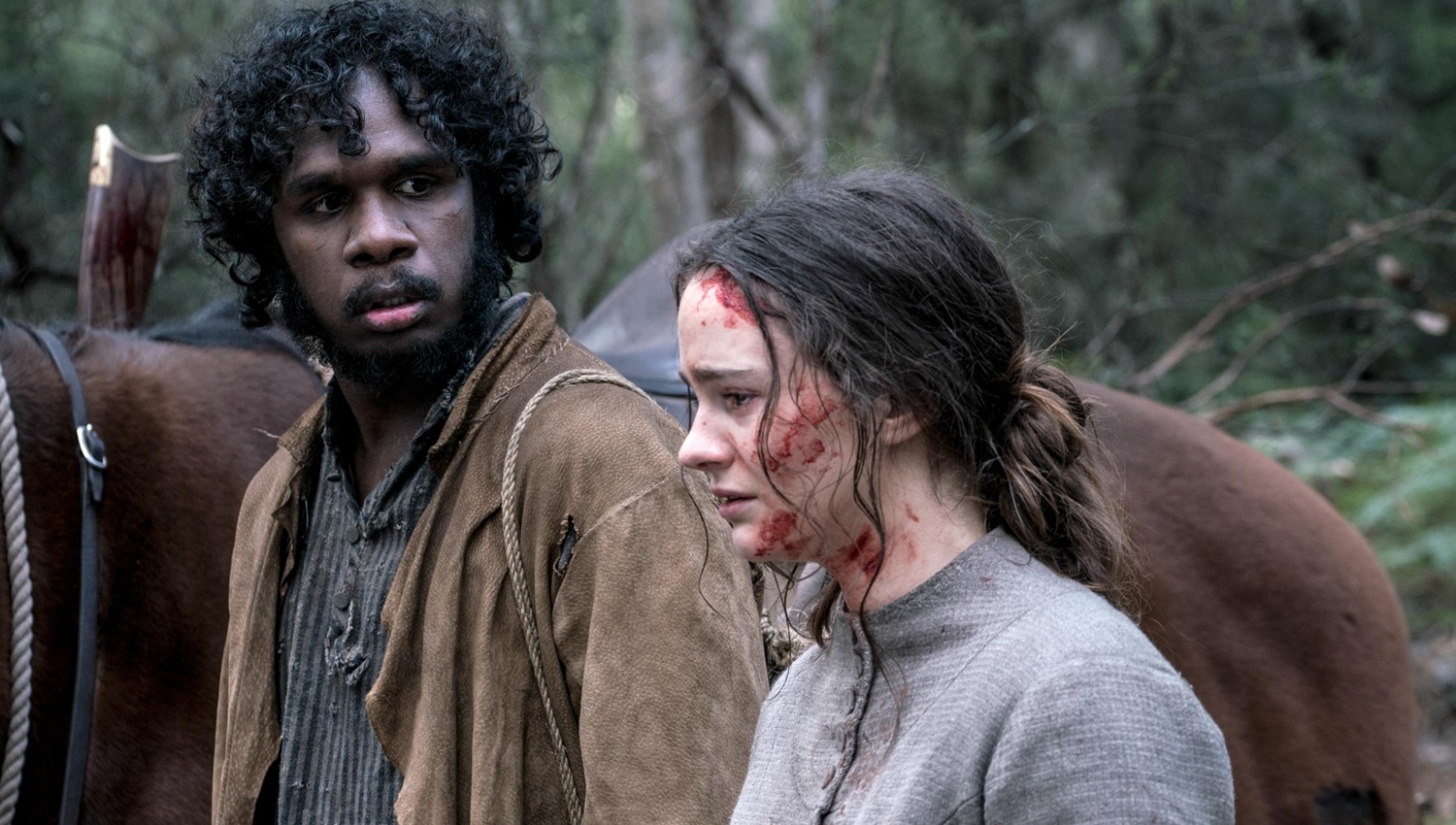
The Nightingale
Dustin Chase
Acclaimed director Jennifer Kent has followed up international hit horror film “The Babadook” with something even more unsettling. “The Nightingale” takes the viewer deep into the Tasmanian Bush, in Colonial Australia. The controversial film premiered to accolades at the Venice Film Festival in 2018 but prompted walkouts during its Sydney, Australia premiere. “The Nightingale” depicts brutal scenes of rape and murder throughout. Kent admitted making the film was heartbreaking but wouldn’t sacrifice the historical authenticity simply because it would be hard to watch. Framed as a revenge story, “The Nightingale” has similarities to 2017 western “Hostiles,” but this one takes international audiences to a war they are likely unfamiliar with.
It’s 1825 and Australia is still a British penal colony. Clare (Franciosi) is a young wife, mother, and convict who is now in the custody of an ambitious British officer. Hawkins (Claflin) is climbing the chain of command in the isolated territory of Tasmania, presiding over the worst behaved officers in the unit. He’s allowed Clare to marry a fellow Irish prisoner but refuses to grant either of them their release papers after time served. Hawkins and his men still have use for Clare. Hawkins temper, lust and thirst for violence loses him favor within the ranks as he aims his anger towards Clare and her family. Desperate to redeem himself, Hawkins sets off towards the nearest town, while Clare hires an aborigine named Billy (Ganambarr) to help track him through the wilderness.
The evil that’s written into Clafin's character and comrades showcases a disregard for human life on a level unseen in mainstream film for some time.
“The Nightingale” explores another violent time in our past that has carried the tradition of “the truth is what I say it is,” as spoken by the white male. Kent might be showing us a violent glimmer into the “Black War” as it was dubbed, but the painfully obvious message is how little has changed in the past 200 years. “The Nightingale” is beautifully shot, nearly every scene exterior and on location in Tasmania. Television actress Franciosi (“Game of Thrones,” “The Fall”) gives a star-making performance in a role that requires her to visit very dark places emotionally. It would be hard to find a character to hate more than Claflin’s Hawkins on screen this year. The evil that’s written into Hawkins and comrades showcases a disregard for human life on a level unseen in mainstream film for some time.
Kent’s original script also explores the cultural clash occurring during the era. The Irish hate the British, the Aboriginals hate the British and everyone is thrown into a mix of muddy violence. Clare’s situation forces her to reevaluate her understanding of aboriginals, as she and her guide both have a shared hatred of British soldiers. “The Nightingale” isn’t a film with much hope or satisfaction attached to its conclusion. Previously mentioned subject matter notwithstanding, it’s a difficult movie to sit through over two hours of wandering through the wilderness. The narrative is split between Clare and Hawkins, so we continuously see the cruelty he enacts on nearly everyone he encounters. This isn’t “Kill Bill” where everything leads up to some cheerful retribution, it’s a conversation starter, with miles to go before any conclusion is ever reached.
Final Thought
Kent continues pushing the cinematic envelope, with a disturbing look into a shameful history.
